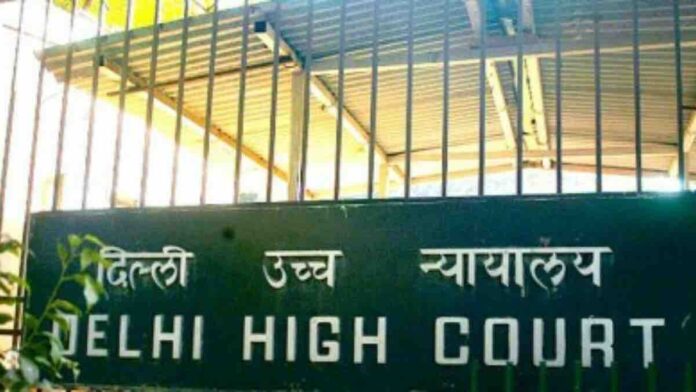Cautioning against frivolous PILs which promote personal, business or political agenda, the Delhi High Court has said courts must carefully weigh if the person before it has any personal motive or oblique consideration.
A bench headed by Chief Justice Satish Chandra Sharma said motivated public interest litigations (PILs) not only pose a grave danger to the credibility of judicial process and consume precious judicial time but also have the propensity of endangering the credibility of other institutions and undermining public faith in democracy and the rule of law.
The “attractive brand name of PIL should not be used for suspicious products of mischief” and should be aimed at genuine public wrong, it said.

“It will be travesty of justice for the resources of the legal system to be consumed by misdirected petitions purportedly filed in the public interest which upon due scrutiny are found to promote a personal, business or political agenda.
“In fact, Public Interest Litigations which have been filed with oblique motive seriously denude the efficacy of the judicial system by detracting from the ability of the Court to devote its time and resources to cases which legitimately require attention,” said the bench, also comprising Justice Subramonium Prasad, in a recent order.
The court remarked that while PIL was conceptualised as a weapon to secure justice for the voiceless, it was being plagued by frivolous PILs which are consuming considerable and precious time.
“The Apex Court said that Public Interest Litigation has to be used with great care and circumspection and the judiciary has to be extremely careful to see that behind the beautiful veil of public interest an ugly private malice, vested interest and/or publicity-seeking is not lurking… Courts must be careful to see that a member of public who approaches the Court is acting bona fide and not for personal gain or private motive or political motivation or other oblique consideration,” said the court.
The court made the observations while hearing a PIL by a woman, who claimed to be a social worker, against an alleged unauthorised construction in the city.
The court noted in spite of the stand of the Municipal Corporation of Delhi that the construction was as per its permission and that it was “keeping a vigil”, the petitioner, for “reasons not known”, continued to press her plea.
The court said there was no reason to doubt the stand taken by the MCD and questioned the bonafides of the petitioner.
“The Petitioner for reasons best known to her has chosen to disbelieve the MCD without any valid reason. This gives a strong suspicion that the submission made by Respondent No.4 (property owner) that certain individuals are trying to extort money from the owners of the subject property might be true,” it said.
“The present writ petition though styled as a PIL is, in fact, the second petition filed by the Petitioner complaining about the unauthorized construction over the subject property,” added the court.
The court remarked although the present PIL was not in public interest, it was desisting from imposing costs on the petitioner, who is a lady.
“This court is being plagued by frivolous PILs which are consuming considerable and precious time of this Court and instead of concentrating on issues which are of vital importance this Court has to spend valuable time in deciding such frivolous petitions,” stated the court.
“Public Interest Litigations which are motivated pose a grave danger to the credibility of the judicial process and also have the propensity of endangering the credibility of other institutions and undermining public faith in democracy and the rule of law,” it said.
The court said if there are deviations from the sanctioned plan, the municipal corporation must proceed in accordance with law and shall not treat its order as a licence for the property owner to carry out construction in violation of the plan.







